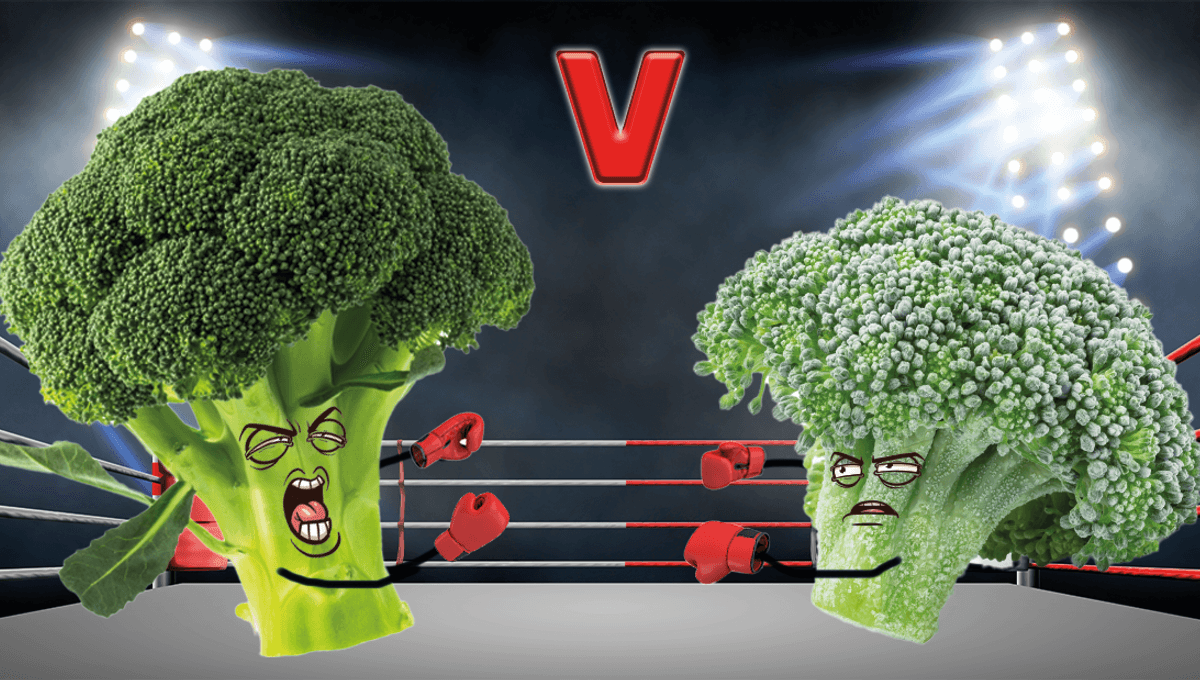
With the cost of living rising, many people are switching up their supermarket habits in order to save money, particularly when it comes to vegetables. Frozen veg is often on the cheaper side, but some might believe that fresh is inherently “better” for you – so which really packs more of a nutritional punch?
In the fresh corner
There’s no denying that crunchy, fresh veg is delicious, but its nutrient levels might not be as high as you think.
As soon as they are picked, vegetables begin to lose their nutrients. That’s because when they’re picked, they’ve been separated from their source of nutrients. To try and keep themselves alive, the cells in the vegetables respire at a higher rate, which can in turn lead to nutrient loss. This can also happen through oxidation, when vegetables are exposed to oxygen during storage and processing.
But therein lies the big nutritional caveat of fresh veg – it depends on how soon after harvesting them that you eat them. With supermarket prices skyrocketing, some people have taken to growing their own veg, or getting it from community gardens. Fresh vegetables from supermarkets typically take a bit longer to get to our tables.
In an ideal world, to get the most out of fresh vegetables, they’d need to be eaten within a couple of days. “After it’s four or five or seven days old, it’s a completely different equation,” Gene Lester, a plant physiologist and national program leader for the US Department of Agriculture, told CNN Health.
In the frozen corner
The degradation of fresh vegetables is a big reason why freezing them became a thing – it gives you more time to use them up, so you’re not left with a fridge full on gone-off green beans. On top of that, frozen vegetables are generally considered to have greater nutrient content because they’re frozen so soon after being picked.
Nonetheless, there’s some suggestion that frozen vegetables might be lower in vitamin C – which has multiple useful functions in the body and y’know, prevents scurvy – than fresh veg. That’s because frozen veg is blanched, a process that involves quickly scalding veg in boiling water or steam and then quickly cooling them.
It’s thought that blanching helps to prevent loss of flavor and that odd gray discoloration you sometimes get with frozen food. It does this by inactivating enzymes in the veg, which couldn’t be achieved with freezing alone. Vitamin C, however, can also degrade under heat, which means that some of it might disappear from veg destined to be frozen.
But the loss of vitamin C doesn’t seem to be that cut and dried; once it’s frozen, there might not be any further loss.
A 2015 study examining the vitamin retention of eight different fruits and vegetables found no significant differences in vitamin C between fresh and frozen-stored spinach, carrots, peas, and broccoli. Frozen corn and green beans were even found to have higher vitamin C levels than their fresh counterparts, which the authors attributed to quicker degradation in fresh veg.
The overall picture
The above study also found that, overall, the vitamin content of frozen vegetables was comparable – and sometimes even higher – than fresh. In the grand scheme of things, however, any differences don’t really matter; no one food is “better” than the other and any veg is better than no veg at all.
Vegetables are packed with fiber, alongside vitamins and minerals, and provide all sorts of benefits, including better digestion, support for the immune system, and boosted energy.
So, if you’re struggling to choose between fresh and frozen, pick whatever works best for you – whether that’s financially, out of convenience, or simply to please your taste buds.
All “explainer” articles are confirmed by fact checkers to be correct at time of publishing. Text, images, and links may be edited, removed, or added to at a later date to keep information current.
The content of this article is not intended to be a substitute for professional medical advice, diagnosis, or treatment. Always seek the advice of qualified health providers with questions you may have regarding medical conditions.
Source Link: Fresh Vs. Frozen Vegetables: Is One Better For Us Than The Other?